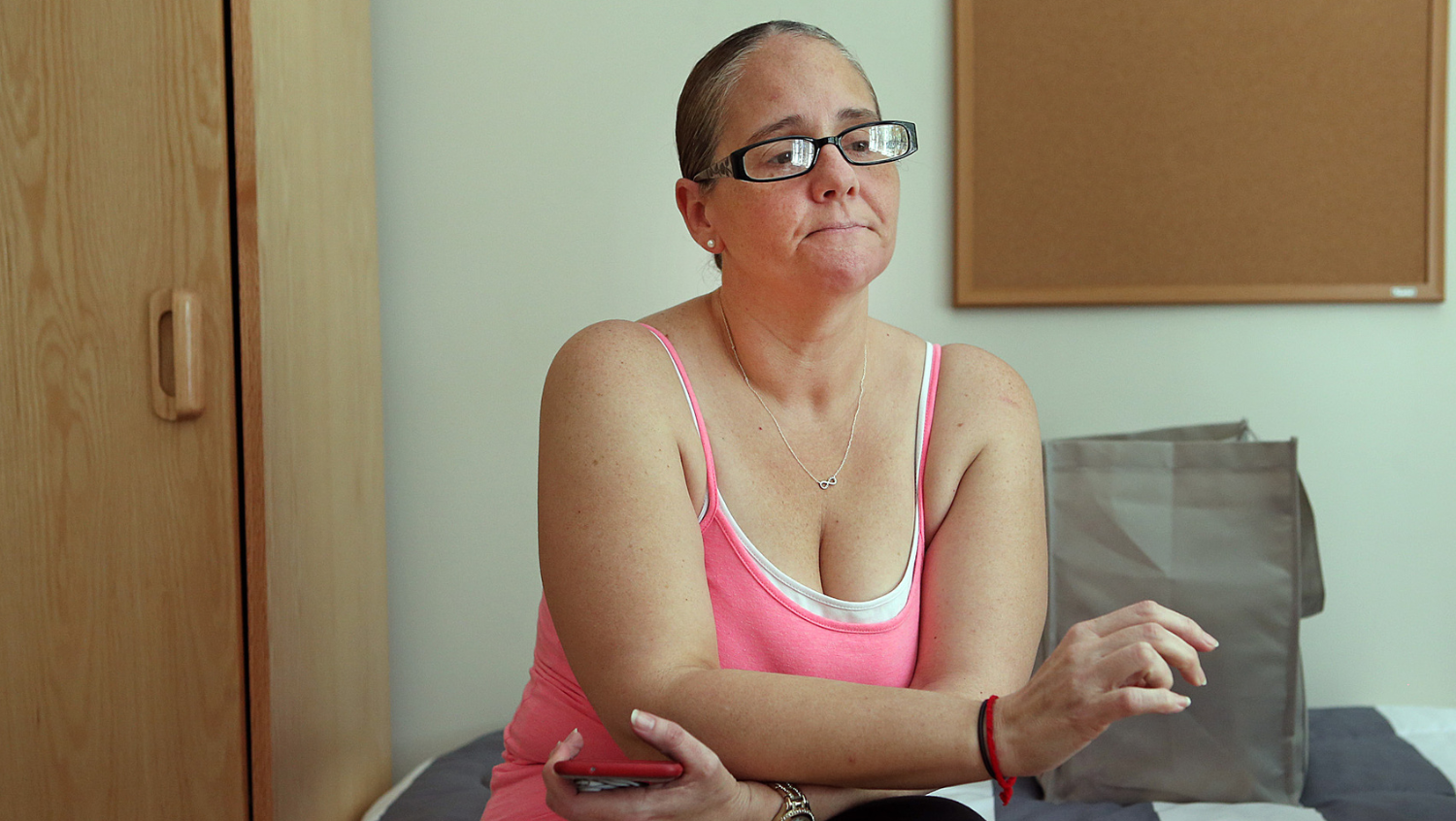Addiction Treatment Focusing on Women Is Key to Parity in Care
March 14, 2023

MediaNews Group/Boston Herald, Getty Images
Sara talks about what it means have a room at the grand opening of the addiction treatment program for women in Boston
Women with substance use disorder have a unique set of challenges for which existing addiction services have failed to find solutions.
Women with substance use disorder have a unique set of challenges for which existing addiction services have failed to find solutions. Women have specific biological, psychological, social, and systemic reasons why accessing and engaging in addiction treatment is more difficult, and so they are likely to fall through the cracks in care without a program that specifically identifies and overcomes these obstacles.
There is a gap in addiction medicine training to address these specific needs of women with substance use disorder (SUD). Recognizing this, leaders of the Grayken Addiction Medicine Fellowship Program piloted a specialized women’s health track. Miriam Harris, MD, MSc, and Jordana Laks, MD, MPH, helped design a fellowship curriculum that leveraged women-focused rotations, continuity clinics, and expert lectures to enhance women-focused SUD training. Their explicit aim is creating an addiction care continuum that empowers women, where previously they have failed women.
Further, through collaboration with program leaders in Obstetrics & Gynecology and addiction medicine collagues, Harris and Laks created another subspecialized fellowship for doctors who completed training in OBGYN, the Maternal Health Addiction Medicine fellowship. This fellowship trains OBGYNs to address the nuanced gynecologic and obstetric needs of patients with pregnancy and lactating potential who have SUD.
Last year, HealthCity interviewed Harris about the importance of women-focused addiction treatment. To dig deeper and talk about the development of the women’s health track, HealthCity, spoke to Harris, Laks, and Cecily Barber, MD, MPH, who is a fellow in Maternal Health Addiction Medicine.
HealthCity: Why did creating this women-specific track for addiction fellows feel so important?
Miriam Harris, MD, MSc: In my time working in Addiction Medicine, I witnessed programs that were not reaching the entire spectrum of the population they were serving. Younger women who had experiences with sexual assault and interpersonal violence while managing their SUD, for example, were not receiving the care they needed. Often, programs were unsafe for young women, less accommodating, and contributed to harm and/or violence toward them.

Many existing programs do not address women’s sexual reproductive health needs, which may have a great impact on women’s substance use treatment needs. Such services really remain siloed from substance use services.
Cecily Barber, MD, MPH: In my experience, working with patients who are both pregnant and have SUD, I am always struck by how much their pregnancy potential, their parenting potential, and societal expectations of them as women influences by how they exist in the world and engage in healthcare.
HC: You all have recognized that there was a gap in the current addiction fellowship curriculum; how was interdepartmental collaboration beneficial in the creation of the women’s health track for fellows?
CB: Boston Medical Center was committed to interdepartmental collaboration, even though it can be hard to bridge surgical specialties, primary care, and addiction care together. This track was created because BMC created the space for two unique pieces of training to come together: Addiction Medicine and Obstetrics & Gynecology. The collaboration allows for us to share more of our mindsets and foster a shared learning of how we can care for patients and train people to effectively care for patients in every unique setting.
“Working with patients who are both pregnant and have SUD, I am always struck by how much their pregnancy potential, their parenting potential, and societal expectations of them as women influences by how they exist in the world and engage in healthcare.”
We have more work to do, more connections to make, and more opportunities to find at all different levels, including residents, medical students, and colleagues in other departments.
HC: What barriers and discrimination do women with addiction face in the healthcare system?
MH: It goes beyond the healthcare systems; all systems have an impact on the population of women with substance use disorder. Data shows that women are more likely to be injured by an intimate partner, and for example, domestic violence shelters discriminate against women who use drugs, either intentionally by saying “we do not welcome you here if you use drugs” or unintentionally by saying “we have no way to support your methadone treatment if you come to this program, so you need to decide if you want shelter from violence or treatment with methadone for your addiction.”
HC: Women who use drugs often interact with people, places, and activities that sustain structural sexism. How does sex work intersect with the experiences of women who use drugs, and how do you prepare fellows for managing the outcome?
JL: Sex work looks different depending on the individual’s life circumstances and their power in relationships. The spectrum of power for women with SUD can range between exploitation and empowerment. People may exchange sex for drugs, for somewhere to stay, for safety, or for personal preferences. I have gotten positive responses from patients when I open up conversations about sex work. Becoming more comfortable talking about sex work helps me build trust and have open conversations about trauma and safety.
MH: We have been advocating for the liberalization of methadone and the decriminalization of drugs, but we should also be advocating for decriminalization of sex work and sex worker rights because these policies directly impact women we see and their experiences of oppression.
Women in this population are often dually criminalized for drug use and sex work. This completely impacts their experience and outcomes. We must think about how our policies impact our clinical interactions and outcomes for our patients.
HC: What do you think is most important to share about the work you all have done? What is the future of caring for your patients?
CB: The fellowship has not only made me a better doctor in an addiction space but also a better obstetrician and gynecologist. I have learned a lot from the patients that we see through the track that I can also apply to all my patients that do not struggle with substance use. Ultimately, it is so important to be more inclusive and to train all doctors well in the large intersection of addiction and reproductive health.
Jordana Laks, MD, MPH: We have a lot more to do in addressing other individuals’ needs all along the gender spectrum. The fellowship track is an example of the dedication, investment, and willingness required to make important changes in training. More work is needed to break down siloes between addiction treatment and other areas of medical and mental health care.
JL: Momentum. Momentum is important for the success of the fellowship and the future improvements in addiction care for women. We are lucky that our community is made up of people who care about this and are working for this. It takes energy and work, but it also takes hope and the ability to see the potential for positive change.
Advancing woman-focused education, research, and policy with a focus on substance use and sexual and reproductive health is feasible and valuable to improving women’s healthcare overall. It’s also works toward gaining footing on understanding how we can advance the health of other vulnerable and overlooked populations.
This interview has been edited and condensed for length and clarity.


